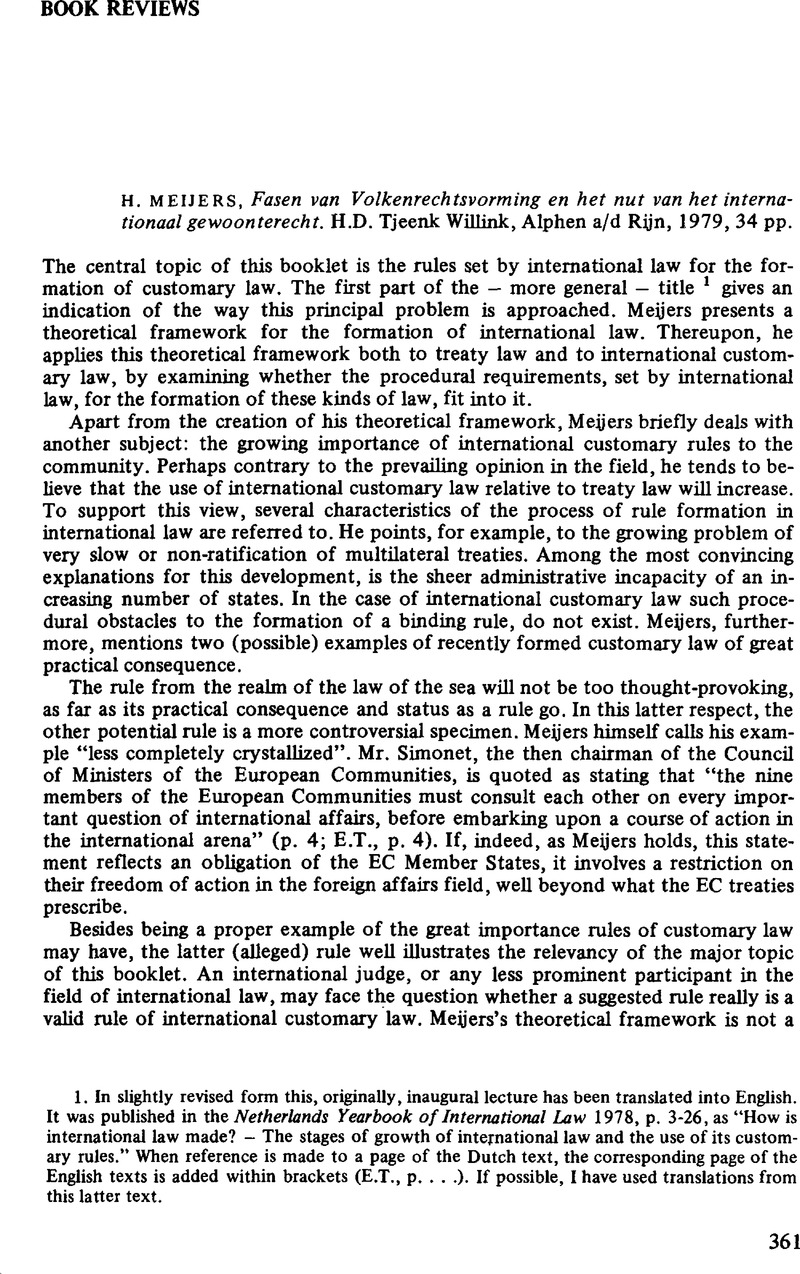No CrossRef data available.
Article contents
H. Meijers, Fasen van Volkenrechtsvorming en het nut van het internationaal gewoonterecht. H.D. Tjeenk Willink, Alphen a/d Rijn, 1979, 34 pp.
Published online by Cambridge University Press: 21 May 2009
Abstract

- Type
- Book Reviews
- Information
- Copyright
- Copyright © T.M.C. Asser Press 1981
References
1. In slightly revised form this, originally, inaugural lecture has been translated into English. It was published in the Netherlands Yearbook of International Law 1978, p. 3–26, as “How is international law made? – The stages of growth of international law and the use of its customary rules”. When reference is made to a page of the Dutch text, the corresponding page of the English texts is added within brackets (E.T., p….). If possible, I have used translations from this latter text.
2. Meijers does not consider the General Principles of International Law to be a separate category in this respect. He shares the wide-spread opinion in the field (usually not made explicit) that the General Principles must meet the same iequirements as rules of customary law in order to be valid international rules.
3. “State” is used as pars pro toto for “subjects of international law, in particular states and international organizations” (n. 6, p. 6; E.T., idem, p. 5).
4. In the (later) English version of this booklet “a rule of international law” is already replaced by “a rule of customary law”.
5. Fortunately, this problem has been largely corrected in the English version (notably the mix-up of Arts. 11 and 12 of the Treaties Convention, at p. 11, and the confusion in respect to b and c of Art. 38.1 of the ICJ Statute).




